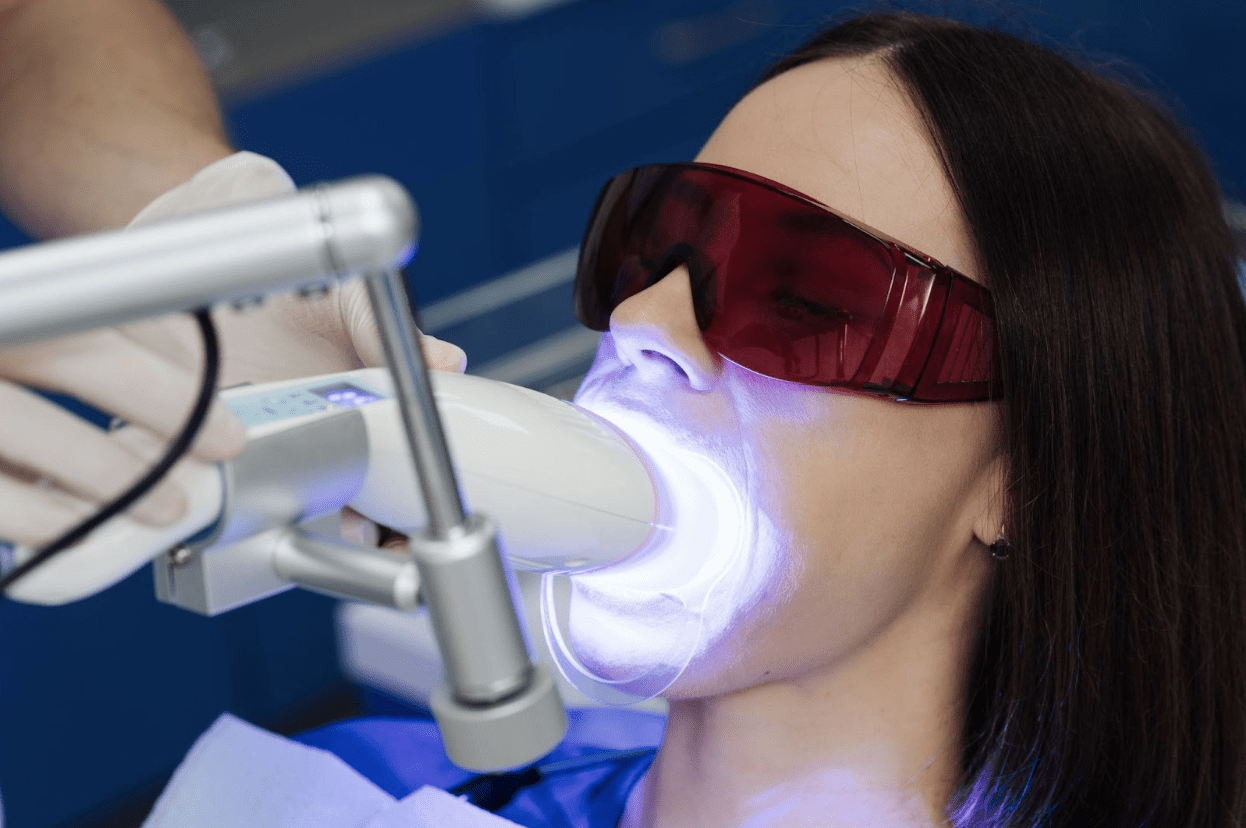The Inner Workings of Teeth Whitening
Tooth whitening treatments usually involve using a bleaching agent to lighten the color of your teeth. The two most common bleaching gels are carbamide peroxide and hydrogen peroxide. The amount of peroxide in treatment can vary. The bleaching agent in the whitening gel or paste breaks down into oxygen molecules. These molecules penetrate the enamel and dentin and react with the stains. The reaction between the oxygen molecules and the stains breaks the bonds that keep the stains attached to the tooth surfaces, making the teeth appear brighter and whiter. Without using bleach, many toothpaste companies offer whitening toothpaste containing chemicals and polishing agents to help remove stains and discoloration. Be careful, though, as this one-size-fits-all approach is frowned upon by some dentists since they do not address a particular patient’s needs.Why You Still Have Sensitive Teeth
Some reasons your teeth are or have been sensitive include:- Eating acidic foods, which can wear away tooth enamel.
- Drinking a lot of coffee, tea, or soda can also wear away tooth enamel.
- Not brushing and flossing regularly can allow bacteria to build up and cause inflammation.
- Grinding your teeth can put extra pressure on and wear them down.
- Gum disease can cause inflammation and make your teeth more sensitive.
- Wearing braces, which can put extra pressure on your teeth.
- Having a cracked tooth, which can expose the sensitive root of the tooth.
- Using commercial whitening products too often.
But What If You Want to Whiten Your Sensitive Teeth?
If you are looking for “zoom whitening near me,” but it’s off-limits for now per your dentist, there is one way to work around that—veneers!- Porcelain: Your dentist will place a cap that goes over each tooth and is made of porcelain. Veneers are strong, can’t get stained easily, and look like natural teeth.
- Composite: These are less expensive than porcelain veneers and are made of a tooth-colored material bonded to your teeth. While they are not as resilient as porcelain veneers, they can be easily repaired. Patients with more sensitive teeth can benefit from composite-resin veneers because they require less tooth enamel for placement.


